I have made a great mistake…probably the biggest of the last 30 years. I labored under a vast misconception about something vitally important. I put it in a critical memo I once wrote for some Congressmen – and fear it may have influenced some of what I have written here, so you need to know what that error was. And you need to know what the facts are, as it has relevance to the debate on IVF today.
For decades I have been operating under the misconception that, during her fertile years, a sexually active woman expels almost a thousand eggs a month, many of them fertilized. She does, indeed, shed about a thousand eggs a month , mostly through natural processes outside of menstruation – but only one per month is available for fertilization. (There are rare variations – which is the cause for multiple births.) After fertilization, fetal development starts once the fertilized egg is implanted in the womb. Again, on a rare occasion, a fertilized egg may not implant and be expelled through mestruation – but that is an aberration.
This has huge consequences. If dozens, maybe hundreds, of fertilized eggs were expelled each month, the moment of fertilization could not be the beginning of life – only the beginning of potential life, like a seed before planting. Otherwise, it would make God the most prolific abortionist on earth. Theologically, that is not and cannot be true. If, however, only one egg can be fertilized each month and that moment of fertilization begins the process of implanting, which then begins the process of fetal development, then the moment of fertilization is the beginning of life. The rare fertilized egg that does not implant is, in effect, the earliest form of a miscarriage.
One might argue that a stored embryo (fertilized egg) is not implanted and so cannot begin development, so what is the problem. There is a vast difference between an embryo that does not implant and one that is artificially prevented from implanting. In fact, one could better argue that the natural process of implanting, which is the imperative of every egg successfully fertilized, IS the first step of fetal development.
I am largely an autodidact on most of the vast array of subjects I cover, with substantial formal training in only five or six areas. The virtue of an autodidact is that he can find deep insights in broad philosophical or narrow technical areas because of his superior logical sequencing and perception of nuance. The deep flaw of an autodidact is that, if he does not take great pains to get the foundational material precisely right, he builds on a false foundation and arrives at deeply false conclusions.
One of my usual safeguards against this is to vet my work with serious experts in whatever field I am speaking on. I vetted my errant work with a prominent and respected (since deceased) microbiologist – and have pondered why she didn’t correct my misconception, when she did correct a minor flaw in terminology. It dawned on me that my supporting data and conclusions were sophisticated enough that it did not occur to her that I misunderstood this basic fact. She actually thought I was a professor of microbiology at another university – and thought I was playing some sort of game with her when I insisted I had no formal background in the subject. Looking back, the original material I sent her was somewhat ambiguous on this point, so it makes sense it would not even occur to her that I misunderstood this most basic fact. Always, always, always, check and verify your premises.
It stings to publicly admit to such a foundational error. It stings more to have operated under such a misconception for so long. From the moment I first took over as chief editor of a group of newspapers, though, I adopted the ethos that, while it was near impossible to never err when you are at it publicly every day, when I discovered I had erred, there would be no correction in tiny type on page 34 from me or silence in the hope you wouldn’t notice: I wanted to make sure you heard about the error first from me – and I wanted you to hear it louder than the original error. It has been a notably useful discipline for me, both cementing credibility over the years from readers and listeners who know that when I screw up, they will it hear it from me loud and clear – and goading me to vet repeatedly my premises so as to rarely have to make such apologies and suffer the sting of embarrassment from them.
I deeply thank Sheryl Collmer, the editor of the CORAC Newsletter, for sending me back to the books on this.
To correct a great evil effectively, one must sequence your approach properly. I do not think IVF should be a political priority right now for the same reason I would not have thought making eligibility for public office for black folks an appropriate political priority in 1862: doing so would undercut the greater priority of freeing the slaves then and ending abortion of developing babies now. You cannot liberate the castle until you have surmounted the outer defenses. But it was a philosophical truth then that all men are created equal and a philosophical truth now that life begins at conception – and conception is at the moment of fertilization. And it is a prime goal for all of us to live philosophical truth.
*********
(What follows below is an adaptation of an article I first wrote 16 years ago for the Chicago Daily Observer and the Illinois Review, concerning the Electoral College. Every midwit on the left (and a few on the right) is calling it antiquated and irrelevant to modern reality. First, just because something was conceived long ago does not make it ‘antiquated.’ Many, perhaps most, today do not understand the difference between a principle and an operating system. A principle is never antiquated: it is either true or false. A proper operating system is a means of trying to realize that principle. The Electoral College is an operating system designed to realize several particular principles. Its critics completely ignore – or are entirely unaware of – the principles underlying it. They criticize it because it very effectively safeguards several critical principles that they want to destroy. This piece illustrates some of those principles – CJ)
“There is a great push afoot to effectively abolish the Electoral College and replace it with a single, national popular vote. This would direct a state’s presidential electors to cast their votes for whoever wins that national popular vote. Advocates say that this would be more fair, make fraud harder, and facilitate a truer national consensus. They are wrong on all counts – and display a startling ignorance of the entire philosophical and operating principles underlying our national republic.
On most matters we show a certain reverence for the founders. Well, we should. They created the first democratic republic in history that did not degenerate, within a decade or two, into chaos and end in dictatorship. Their achievement is profound: while the United States is one of the youngest nations on the planet we have the oldest continuous form of government. That achievement is doubly impressive if one is aware that, historically, democracy has been one of the most volatile, unstable forms of government known to man. The founders somehow managed to separate the nitro and the glycerin of freedom and create something that would last rather than blow up every time it is jarred.
When in high school I, too, thought the Electoral College a strange, antiquated institution. While in college I came to recognize some of the magnitude of the founders’ achievement. Rather than assuming they had tossed it into the Constitution as some sort of bizarre joke I thought it more useful to do some investigation on what, exactly, was on their minds. (Incidentally, when he was a senator, the late Pres. John Kennedy wrote a very lucid explanation of the Electoral College and why it has served the nation well). The people behind this push helpfully explain that among the main reasons the Electoral College was originally needed was because of the lack of cell phones, computers, calculators, the internet and other modern inventions. Can they possibly be that stupid?
A presidential election, though held on a single day, is not a single election. It encompasses 50 discrete elections, one in each state. The people do not directly elect a president; the states do, guided by the will of their particular citizens. To give an example, suppose the Cubs and the White Sox were in the World Series (you Southern Illinois Cardinal fans can substitute the Cards and the Royals – or better yet, an NLCS between the Cards and the Mets). The White Sox win three games by a score of 10-0. The Cubs win four games by a score of 1-0. The White Sox, in essence, win the popular vote 30-4. But the Cubs win the series because it was not one seven-day long contest to see who could score the most runs. It was seven individual games. Perhaps you think a presidential election should not be the collective decision of the states, but a single expression of the national popular will. Consider some of the real reasons the founders adopted the Electoral College and how these reasons relate to modern circumstances.
First, the states are different sizes. In order to prevent small states from losing all influence and just being swept along by big-state interests in national affairs, the small states’ weight in the electoral college is slightly larger than the big states in comparison to their population, because of the uniform rule of two senators per state, regardless of size (the total number of electors each state gets is equal to the sum of its members of the U.S. House and Senate). Abolish the Electoral System and every presidential election hence would be contested – and decided – in five to eight major urban areas. Small, and even medium size states, might never again even see a presidential candidate. Rural influence on presidential elections would evaporate entirely. After a few elections voters in small states and rural areas would figure out their vote was utterly meaningless. Participation in elections would likely drop because of the futility of it. Tensions between rural and urban interests would become dreadful, perhaps intractable. Even the invention of cell phones hasn’t changed that.
Second, there was the fear of regionalism, that some areas of the country with common interests might band together to hijack national presidential elections by the intensity of their votes. Were it not for the Electoral College this would have actually happened in 1860. There were several southern states in which Abraham Lincoln did not get a single popular vote. Despite having a minority population, the south, by the intensity of its commitment to the slave culture, could have hijacked that election from the rest of the country. The Electoral College prevented that. The Civil War was a great battle both over slavery and national union. The crisis would not have been averted without an Electoral College, only postponed and intensified. The likely end result would have been the Balkanization of what is now America. One of those little filigrees the founders added, to give stability to this great democracy, worked to save the nation and put an end to the sort of regionalism that had, in earlier times, been catalyst for destruction of democracies. Abolishing the Electoral College would likely resurrect the specter of regionalism. Take a look at the map. West of the Mississippi River every state except California and Texas would become powerless in national elections unless some of them banded together and, as the old south did in 1860, voted monolithically. In the southeast, which states other than Florida and, perhaps, Georgia, would have any influence? Look carefully at the map before glibly injecting this old element of instability back into the prospect of national union that the founders most painstakingly and brilliantly worked to eliminate. The invention of calculators doesn’t change this a whit.
Third, there is the matter of vote fraud. It deeply puzzles me that proponents of this plan seem to honestly believe it would make fraud more, rather than less, difficult. The founders created the Electoral College, in part, to make it more difficult for unseemly combinations to conspire to hijack an election. Read that as vote fraud and special interests. It is rare that a conspiracy of fraud in only one state could hijack an election (Evidence of massive fraud in Illinois and Texas, either of which could have changed the election, exists from the 1960 election, but it is the exception, rather than the rule. Even had Nixon chosen to contest the result, he would almost certainly have confined himself to one or both of these states, rather than the even more nightmarish scenario of a national recount. Of course, since 2016, the left has made electoral fraud into a wholesale, rather than retail operation). Imagine that polls show an election to be a dead heat in the late going. Conspirators do not have to come up with multiple conspiracies in several states to cheat the electorate: they need only confine themselves to electoral corruption mainstays such as Chicago, Texas, Louisiana, Los Angeles and such. Massive vote fraud in any one of these would be sufficient to gain a tainted victory where only the national popular vote counts in a dead heat. One need only look at the experience of western democracies where a single, national vote does determine the outcome of the chief executive to see that fraud changing the outcome is easier, not harder than under our “archaic, antiquated system.” The invention of the computer makes such “unseemly combinations” much easier, not more difficult.
Fourth, the legislation is unenforceable. Under the Constitution once electors are chosen, they have the absolute right to vote for whomever they choose. Long-term practice has led to a gentleman’s agreement in which each elector votes for the candidate who won their state’s popular vote. Once a state has chosen its electors, it cannot bind them to vote for anyone in particular. It would require a Constitutional Amendment to change this. In 2000, the Gore campaign actively tried to persuade electors from states that voted for Bush to be ‘faithless’ and vote for Al Gore anyway. The Clinton campaign did the same with Trump electors in 2016. In each of the elections of 2000, 1988, 1976 and 1972 a ‘faithless elector’ did vote against who they were pledged to. Any serious enforcement clause injected into National Popular Vote legislation would make it unconstitutional.
Imagine, now, a scenario in which Barack Obama and Donald Trump were their respective party’s nominees (I choose them for this example because of the big states they come from). The election is close as can be. Without Illinois, Trump is the victor. Former Chicago City Clerk Jim Laski did interviews a decade ago explaining the “Chicago Way;” how they would accomplish vote fraud not just by forgery and voting the dead, but actually cutting and pasting the chad on absentee ballots if they were cast for the ‘wrong’ candidate. You’re from Florida and you have read about all of this. Do you ask your delegation to vote for Obama? And what about the rest of the country? If the legitimacy of a presidential election came down to believing in the electoral integrity of the Chicago precinct captain, what kind of chaos would ensue? Once this boundary was breached it would be far more likely to destroy the gentleman’s agreement among electors than to enhance national unity. The internet could communicate the news, but it would not stop the chaos.
Over the last century we have abolished many of the elements of stability the founders injected into our unique system of government. A serious student of the history of democracies would be alarmed at the number of symptoms our culture has developed that have previously been precursors to a democracy’s descent into chaos. In fact, the current chaos in our country is typical of that of the many, much shorter lifespans of democracies unraveling. The elimination of yet another critical safeguard is not a good idea. Contrary to popular (and uninformed) opinion, the Electoral College was not invented by a mad founder as a practical joke.
Before tinkering with the system that has resulted in the longest lasting democratic republic in world history, willful modern midwits should take some pains to understand how that astonishing result was achieved – and maybe show a little more respect for the founders’ achievement and expertise.”
*********
I have long enjoyed – with some reservations – the fresh, candid approach to a lot of subjects that Tucker Carlson brings. He does not have any sacred cows. The reservations have come because, at times, Carlson ventures with confident swagger into subjects he clearly does not have even basic knowledge about – and seems to take no pains to get before he starts opining. This has been an annoying flaw (which some dismiss as a mere quirk) that has blunted my respect for the man. It is disturbing enough that, when he does come up with a deep insight (which, in fairness, he often does) I check his premises carefully before assuming that insight has real, rather than just apparent worth.
His latest interview, though, in which he cheerfully went along with a revisionist ‘historian’ who posits that Winston Churchill was the great villain of World War II and that the holocaust was a mistaken effort by the Nazis to be humane, is a bridge waaaay too far. It revealed a staggering level of historical ignorance by a figure who would be taken seriously in large public discourse. (Yes, I know that most establishment media anchors and commentators are even more ignorant than Carlson, but I haven’t taken them seriously for a very long time.)
I started this piece with a serious error I have made. It happens, despite best efforts sometimes. But Carlson showed no grasp of the most basic historical facts in this interview and, even worse, no desire to get them before doing this. I am done with him. He is not as unreliable a source as, say, Brian Stelter, but he clearly has joined, even if unwittingly, the growing assault on truth and memory. I’m done with him.
*********
In just over a week I will hit the road to make a full circuit of the contiguous United States. I will head east first, into the Midwest and on through the northern Appalachian States. We will have a field day in Maryland in mid-October, then I will spend a couple of weeks in New England. From there, I will double back to Texas and Louisiana the first of November, then into the southeast to spend the holidays with family. After the New Year I will basically head west in a clockwise direction to cover the rest of the country. If you want to schedule a talk or event, please contact my scheduler at ginaw@coracusa.com. And leave the light on for me!

If communication goes out for any length of time, meet outside your local Church at 9 a.m. on Saturday mornings. Tell friends at Church now in case you can’t then. CORAC teams will be out looking for people to gather in and work with.
Find me on Twitter at @JohnstonPilgrim
The Corps of Renewal and Charity (CORAC)
18208 Preston Rd., Ste. D9-552
Dallas, Texas 75252
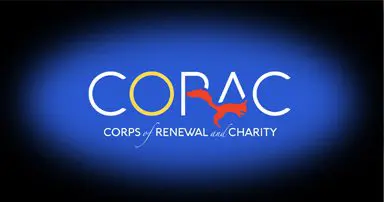


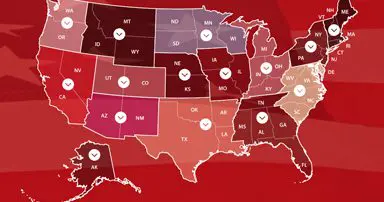



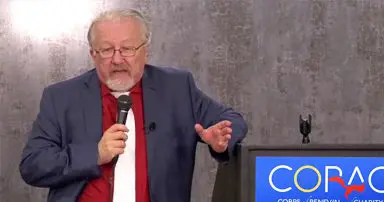












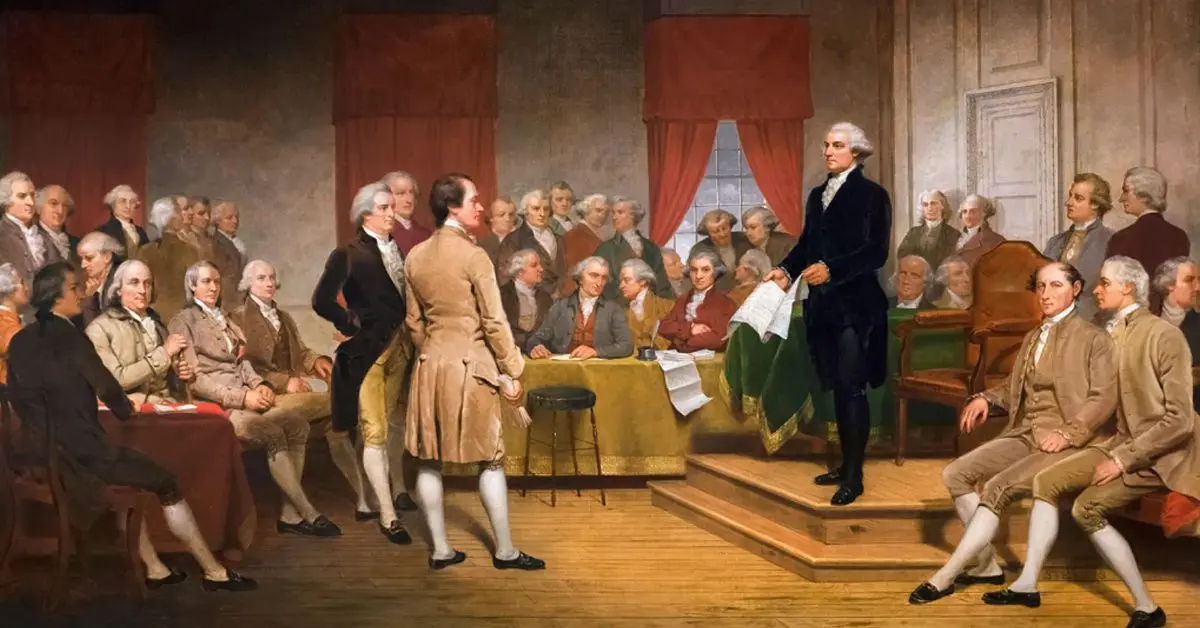
























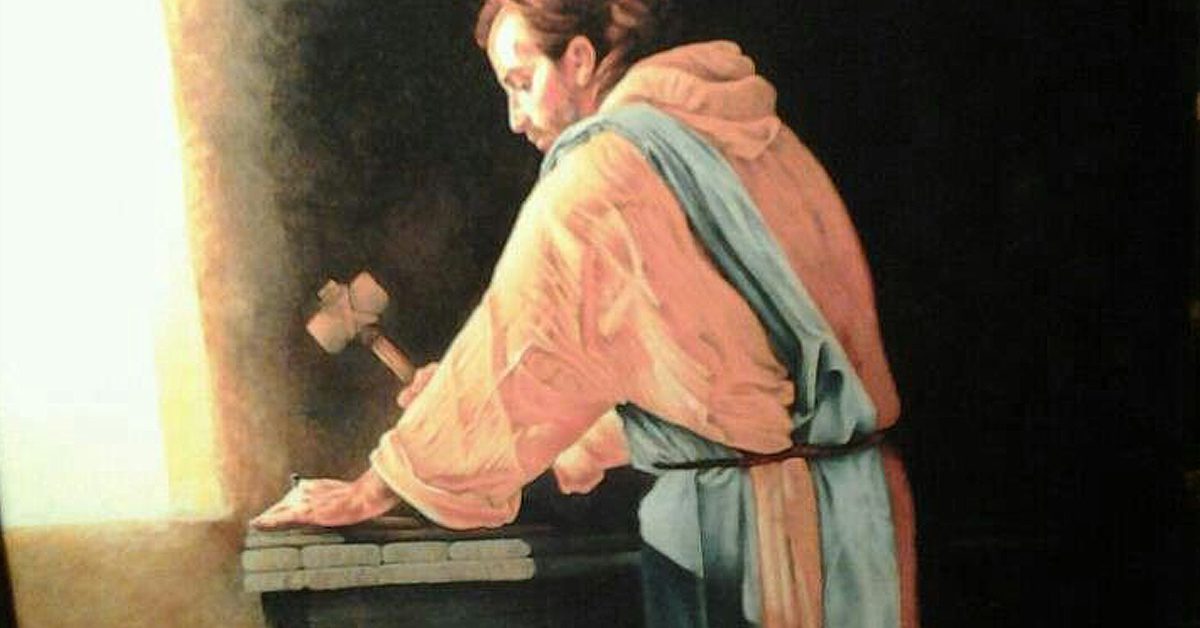



0 Comments